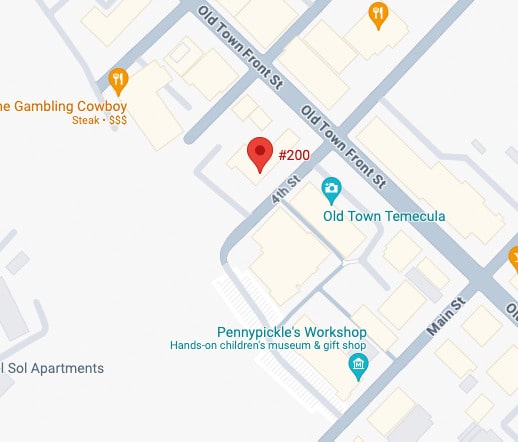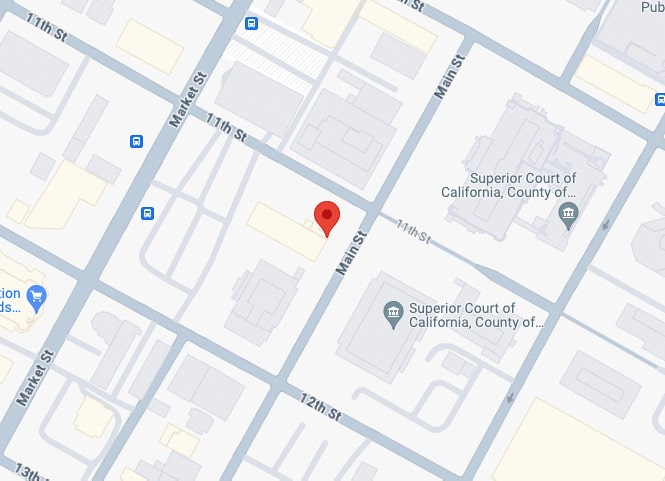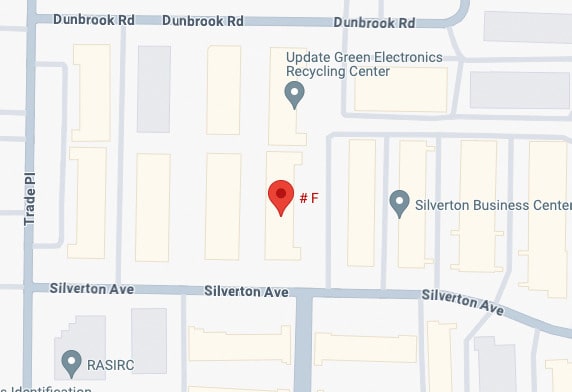If you face assault charges in California, you will almost certainly have to go through a lengthy legal process before a judge decides whether or not you are guilty. The legal process in California can be complex because it involves several processes and procedures that you must follow precisely. Understanding the legal process regarding your case will help you prepare for the arduous journey ahead. The most important thing is understanding your rights and fighting any violations. For example, after an arrest, you have the right to bail. If the court sets your bail at a high amount, you can seek financial assistance from a reliable bail bondsman. A bail bondsman can assist you with posting bail and the legal processes that follow your bail release. They will ensure you complete your trial to avoid additional legal issues that could further jeopardize your situation.
The Criminal Court Process After an Arrest for Assault
The criminal court process following an arrest is primarily determined by the charges you face, whether misdemeanor or felony. Depending on the circumstances of the case, an assault charge can be prosecuted as a misdemeanor or a felony. A simple assault charge is a misdemeanor, but if aggravating factors like great bodily harm are present, the prosecutor can charge you with a felony. The criminal court process is similar for misdemeanors and felonies. Here is what you can expect if you face assault charges today.
The Investigation Process and Arrest
Before an arrest, an investigation into a criminal allegation takes place. Law enforcement will come to your home, workplace, or school, or stop you on the street, to question you about the assault allegations. They will also ask anyone who knows you or has information about you or the matter. If the police have sufficient evidence against you, they will obtain a warrant for your arrest from the judge and make an arrest.
You are not informed of your arrest's time, day, or date. When the police have enough evidence to back up your charges, they will pursue you from wherever you are. Your arrest could occur at home, work, school, or streets. A warrant of arrest authorizes law enforcement to arrest you on sight.
Understanding what to do and what not to do following a criminal arrest is critical. The arresting officer is required to read your Miranda rights to you. These are your rights to remain silent to avoid implicating yourself. Even in their custody, you are not required to answer any questions. You are not required to defend yourself; you will have ample opportunity to do so during the trial.
Miranda rights include the right to an attorney. Having legal representation from the beginning of the legal process is critical. Your attorney defends your rights, speaks for you to avoid self-incrimination, and ensures you understand your options. If you cannot afford an attorney, the court will appoint one. As a result, after your arrest, you can request legal representation from the police.
The Booking Process
The officers will let you know your charges once you are in custody. They will take you to the police station, where you will be booked. Booking entails recording your personal information for the police database. Everyone who has been arrested must undergo this booking process. Name, address, date of birth, employment details, and physical description are personal information you provide to the police. In addition, an officer will take your fingerprints and mugshot for the database. They will also review previous arrests and include that information in their report. The prosecutor will use the police report to file criminal charges against you.
Police booking records information the court and other interested parties need to know about anyone arrested. It establishes a formal arrest record. Even those released immediately after arrest must go through the booking process. However, it does not imply guilt for the charges you face.
After the police take your vital information and mugshots, they seize your personal property and clothing. You could be given a jail uniform and asked to surrender your belongings. Unless they find contraband like a knife or anything considered evidence on your person, the officer will keep your personal belongings safe until your release.
In addition to checking for any outstanding arrest warrants against you, the booking process includes a health check. Finally, you will be taken to a holding cell to await your first court appearance.
First Arraignment
When the prosecutor files criminal charges against you, the court will schedule your arraignment hearing. An arraignment hearing is a formal court proceeding after your arrest. It could happen the same day as your arrest or a day later. The law prohibits holding an alleged offender for an extended period before a court determines them guilty. In this case, the judge schedules your initial arraignment or hearing immediately.
Typically, the initial hearing is brief. The judge cuts right to the chase. After an arrest, they will first inform you of your constitutional rights, including your right to remain silent and to an attorney. The judge then determines your criminal charges, whether misdemeanor or felony assault. You will have your first opportunity to enter a plea before the judge. You have the option of pleading guilty or not guilty. A guilty plea advances the case to the next level, where you will receive your sentence. However, you will go through a trial if you plead not guilty.
If you plead not guilty, the court will order that you be freed on bail. Keep in mind that you have the option to bail. However, the judge determines the amount and your eligibility based on the facts of your case and your criminal history. The prosecutor will present evidence and arguments in support of or against a high bail amount. In addition, the defense team will present evidence and arguments to counter the prosecutor. The judge decides based on the evidence and arguments presented. The judge could make any of the following bail decisions:
- Granting bail and setting it at the exact amount established on the bail schedule.
- Granting bail but setting it higher or lower than what is listed on the bail schedule.
- To deny bail and detain you in jail pending trial.
The bail schedule usually fixes the bail amount. It is determined by the nature and gravity of the charges you are facing. A misdemeanor charge requires less bail than a felony charge. When setting bail, some judges adhere to the bail schedule. Other times, they adjust the amount based on the facts of the case.
After the bail matter is settled, the judge sets a date for your trial. You must attend trial as the process sets the pace for the conclusion of your case. Failure to attend trial could result in additional criminal charges.
Release on Personal Recognizance
In some cases, judges grant a release on personal or own recognizance, in which the defendant pays no money to ensure their court appearances. Personal recognizance is typically reserved for first-time offenders facing minor criminal charges. However, if you promise to make all appearances on time, your attorney can fight for an own recognizance release.
However, the judge's decision is influenced by several factors, including your criminal history and the facts of your case. For example, if you are released on personal recognizance and face serious felony charges, you could flee to avoid trial. In this case, the judge must set a high bail amount to deter you from fleeing after your bail release. If the judge is unsure about your willingness to attend all trial dates, they will deny bail and order your detention until the resolution of your case.
The Judge Can Deny You Bail
A bail amount is usually listed on the bail schedule for standard offenses. However, bail is not always guaranteed. The judge can deny bail for a variety of reasons, including:
- You are facing severe or violent assault charges.
- You are a potential flight risk.
- Your release will endanger the community.
- You have a history of bail evasion.
If the judge denies bail, the officers will keep you in jail until your case is complete. However, your attorney can file an appeal against the judge's decision. If they persuade the judge that you will make all trial appearances and will not be a problem to anyone or the community after the release, the judge can reconsider.
Bail Payment
Most defendants facing assault charges are eligible for bail release. As a result, it will only be a matter of time before you are free from police custody following your first arraignment. Paying bail has several advantages. For example, it gives you time to gather evidence and prepare to defend yourself. That could be difficult if you are still in custody. You can also hire an attorney and conduct witness interviews. Bail also restores your life. If you stay in jail, you could lose your job, family, meaningful friendships, or a chance at school. You can return to the crucial things in your life after bail release.
The court will determine your bail payment options based on your ability to pay. Here are some possibilities:
Cash Bail
If you post cash bail after arrest, you should pay the court the full bail before signing your release papers. Cash bail can be paid in cash, by check, or by credit or debit card. What matters is that you clear the entire bail before your release from police custody. The officers will process your release once you pay the entire amount. You will be back to your everyday life in a matter of minutes.
The main benefit of cash bail is that it is simple and quick. If you have the entire amount to post bail, you can be released on the same day of your arrest. Furthermore, regardless of its outcome, the amount is available after the case.
However, posting cash bail could be difficult if you have less than the required amount to guarantee your court appearances. If you wait too long to fundraise, you could stay in police custody longer than necessary. You could also lose the entire amount if you fail to appear. Bail forfeiture is one of the consequences of failing to appear. If the court forfeits your bail, you will lose significant money.
Property Bond
Judges sometimes grant property bonds for defendants who do not have enough money to post cash bail but have valuable property that they can use to guarantee their court appearances. A property bond can take many forms, like a title to real estate, vehicle documents, or home title. Someone in your family can use a valuable asset to ensure your appearance. However, the property's value must be greater than your bail. Before accepting the asset as collateral, the court will determine its actual value.
Regardless of the outcome, the court will return the property after the case. However, if the court forfeits your bail due to a bail violation, you could lose your entire property to the court.
A Surety Bond
Your other option is to seek the assistance of a third party in posting bail. Bond dealers provide surety bonds. They have licensed bail bond dealers who offer financial assistance to defendants who cannot pay bail. Surety bonds are now straightforward due to the abundance of bond dealers. You can find them near local courts and jails and online. You do not need to visit their offices because they provide bail bonds service over the phone and online.
You can look for a reliable bail bond service if you are granted bail and cannot pay it in cash. The bondsman will begin the process immediately to avoid keeping you in police custody longer than necessary. They will require your personal information, information about your assault charges, the amount of bail, and the name of the jail where the police are holding you. They will also inquire how you intend to pay for the bail bonds service.
Surety bonds are available from bond dealers for a reasonable fee. Typically, the standard amount is 10% of your bail. Depending on your financial situation, you can pay the entire amount up front or arrange flexible payments. Bail bondsmen also provide flexible payment options. When you are free, it is simple to pay for surety bonds.
The benefit of a bail bondsman is that they are usually prepared with the amount required to secure your release before trial. Instead of wasting time soliciting money from family and friends to pay cash bail, you can quickly contact a bail bonds dealer for assistance with bail.
Surety bonds are also very inexpensive. You only need a portion of the bail, not the entire amount. Once you have paid the required fee and are careful not to miss any court hearings, the bondsman will not ask for anything else.
Bond dealers are also well-versed in court and jail procedures. Once they start the bail process, there will be no delays. Remember that the longer you are in police custody, the worse your family, social, or professional situation will become. As a result, you require an immediate solution to obtain pretrial release following your arrest.
Trial and Sentencing
After posting bail and being released, you are expected to appear in court on the trial date. Depending on the evidence and the number of witnesses for the prosecution and defense, your trial could last a single day or several days. Missing any court date carries serious consequences, including forfeiture of bail and additional criminal charges.
Your attorney and bondsman will make sure that you attend all trial appearances. That way, you will not have to post the total bail amount to the court. Failure to appear can also result in a criminal conviction and severe consequences, like jail time and a fine. Furthermore, your failure to appear can influence the judge's decision in the future when you apply for bail release following another arrest.
After your trial, the judge decides on your case. If you are found guilty, you will face a sentence as per the law. If, on the other hand, the jury finds you not guilty, you will be released with no further charges.
Find a Trustworthy California Bail Bonds Service Near Me
If you face arrest for assault in California, you could remain in police custody long before a judge rules on your case. However, you could be eligible for bail. Bail restores your freedom before trial, allowing you to prepare for the trial and continue your life until the judge's decision. Unfortunately, bail for assault charges can be prohibitively expensive for you and your family. However, at Justice Bail Bonds, we can assist you in obtaining a pretrial release. We can post surety bonds on your behalf when you are arrested. You will not have to stay in police custody any longer than necessary. Our bail bonds are reasonable, dependable, and timely. To learn more about our bail bonds service, call us at 951-445-4155.










